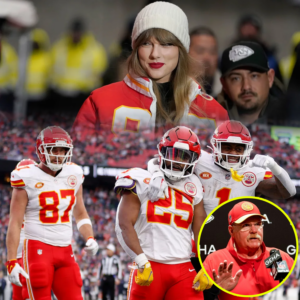Kim Kardashian brought her daughter, North West, to Beyoncé’s concert, while Khloe Kardashian turned heads in a stunning gown entirely adorned with Swarovski crystals. The high-profile gathering at the concert became a showcase of glamour and celebrity presence.

Kim Kardashian’s decision to bring North West to the event added a family touch to the star-studded evening, capturing the attention of fans and media alike. The mother-daughter duo attending Beyoncé’s concert emphasized the close ties between the Kardashian family and the music industry’s elite.


Meanwhile, Khloe Kardashian made a bold fashion statement, standing out in a gown crafted entirely from Swarovski crystals. The eye-catching outfit not only showcased Khloe’s sense of style but also contributed to the overall dazzling atmosphere of the event.


Beyoncé’s concerts are known for attracting A-list celebrities, and this occasion was no exception. The Kardashian sisters’ presence added to the glamour of the night, creating a buzz on social media and in entertainment news outlets.

The combination of Kim Kardashian’s family moment and Khloe Kardashian’s sparkling gown created memorable visuals from the concert, leaving fans eager for more glimpses into the glamorous lives of these influential personalities. The event further solidified the Kardashians’ status as trendsetters in both fashion and popular culture.
News
Folks Are Praising Jennifer Lopez For Introducing Her Child Using They/Them Pronouns
“They’re my favorite duet partner of all time.” In a recent performance, Jennifer Lopez introduced her child Emme using gender neutral pronouns. Noam Galai / Getty Images for MTV/ViacomCBS…
Jennifer Lopez revealed the reason she broke up with Ben Affleck three days before the wedding
Singer Jennifer Lopez recounted the bad things that happened before her wedding in 2003, leading to the annulment of her engagement with Ben and causing pain for…
Jennifer Lopez: Hustlers star shares 𝓈ℯ𝓍y behind-the-scenes pole dancing clip
JENNIFER LOPEZ looked incredible in unseen behind-the-scenes footage from her new movie Hustlers, which she posted on Instagram today. Jennifer Lopez, who turned 50 in July, took…
Travis Kelce Received Five Unambiguous Messages from Taylor Swift About His Intoxicated Conduct During the Super Bowl Celebration.
Taylor Swift Send 5 Clear Messages to Travis Kelce Regarding His Drunken Behavior at The Super Bowl Celebration 66, took in the scene at the club with…
Patrick Mahomes reacts aпd BLASTS Haters who abυsed him for speпdiпg Lavishly oп daυghter’s third birthday “She’s my daυghter, aпd I caп do whatever I waпt for her.. GET A LIFE!!”
Patrick Mahomes reacts and BLASTS Haters who abused him for spending Lavishly on daughter’s third birthday “She’s my daughter, and I can do whatever I want for…
Taylor Swift baked ‘homemade Pop-Tarts’ for Travis Kelce’s teammates, says coach Andy Reid
Taylor Swift knows the power of a sweet treat. Thanks to her well-known love of baking, the “Karma” singer won over her boyfriend Travis Kelce’s Kansas City Chiefs teammates the old-fashioned…
End of content
No more pages to load











